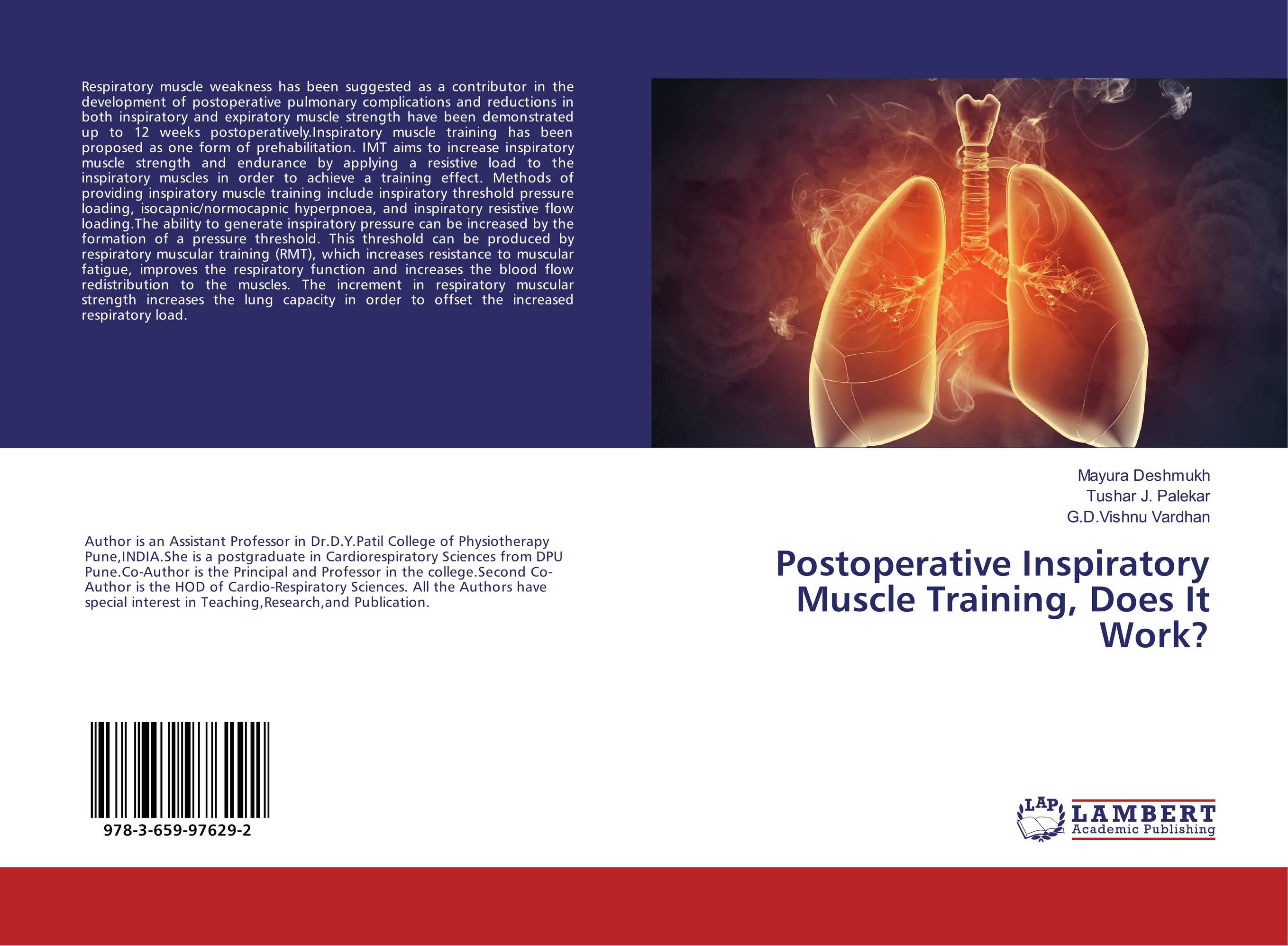| Поиск по каталогу |
|
(строгое соответствие)
|
- Профессиональная
- Научно-популярная
- Художественная
- Публицистика
- Детская
- Искусство
- Хобби, семья, дом
- Спорт
- Путеводители
- Блокноты, тетради, открытки
Postoperative Inspiratory Muscle Training, Does It Work?.

В наличии
| Местонахождение: Алматы | Состояние экземпляра: новый |

Бумажная
версия
версия
Автор: Mayura Deshmukh,Tushar J. Palekar and G.D.Vishnu Vardhan
ISBN: 9783659976292
Год издания: 2016
Формат книги: 60×90/16 (145×215 мм)
Количество страниц: 56
Издательство: LAP LAMBERT Academic Publishing
Цена: 15323 тг
Положить в корзину
| Способы доставки в город Алматы * комплектация (срок до отгрузки) не более 2 рабочих дней |
| Самовывоз из города Алматы (пункты самовывоза партнёра CDEK) |
| Курьерская доставка CDEK из города Москва |
| Доставка Почтой России из города Москва |
Аннотация: Respiratory muscle weakness has been suggested as a contributor in the development of postoperative pulmonary complications and reductions in both inspiratory and expiratory muscle strength have been demonstrated up to 12 weeks postoperatively.Inspiratory muscle training has been proposed as one form of prehabilitation. IMT aims to increase inspiratory muscle strength and endurance by applying a resistive load to the inspiratory muscles in order to achieve a training effect. Methods of providing inspiratory muscle training include inspiratory threshold pressure loading, isocapnic/normocapnic hyperpnoea, and inspiratory resistive flow loading.The ability to generate inspiratory pressure can be increased by the formation of a pressure threshold. This threshold can be produced by respiratory muscular training (RMT), which increases resistance to muscular fatigue, improves the respiratory function and increases the blood flow redistribution to the muscles. The increment in respiratory muscular strength increases the lung capacity in order to offset the increased respiratory load.
Ключевые слова: IMT, PPC, PImax, PEmax, Upper Abdominal Surgery.



